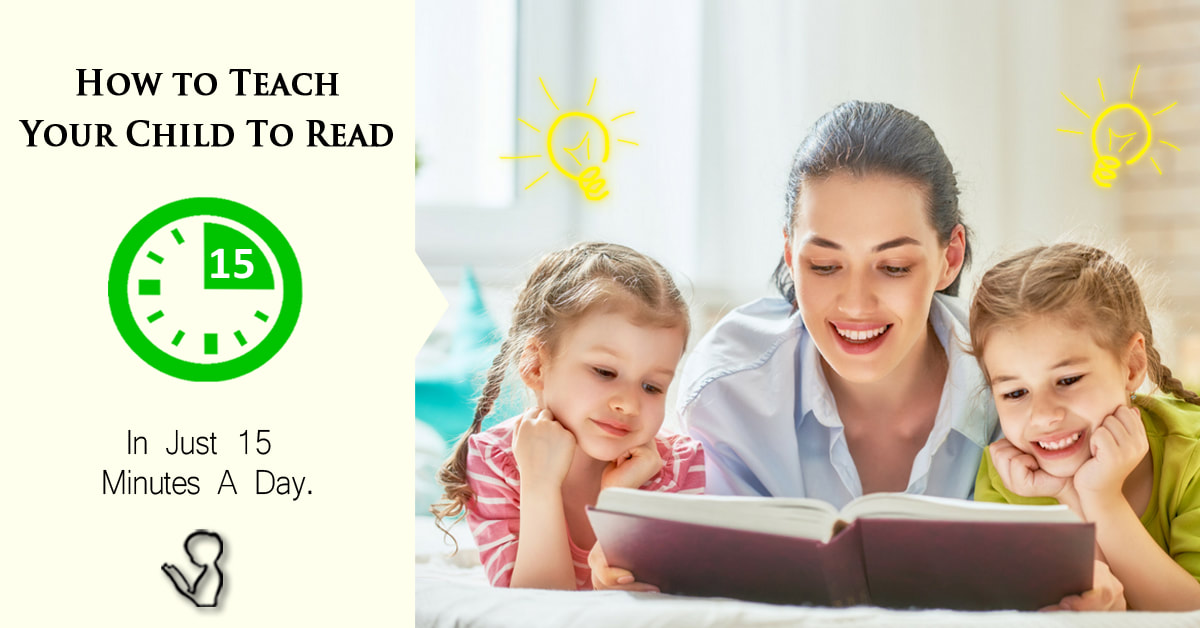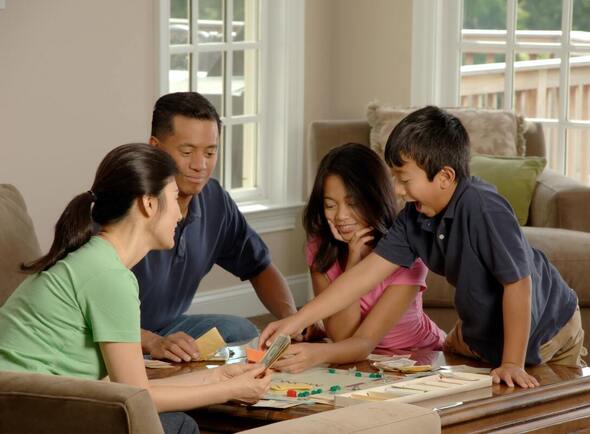Games! Games! Games!Post may contain Affiliate Links.  Studies have shown that students who played games as part of their regular curriculum were significantly more engaged, and outperformed their peers on both factual knowledge and depth of knowledge. Learning games happen often in the classroom but let's bring the learning games home. Children learn best when they're having fun. Here are eight fun ideas to keep your kiddos engaged during distance learning or anytime you want to bring learning fun to the house. Put away that paper/pencil activity and let's get engaged! Four CornersThe "Four Corners" activity is a fun activity that takes very little preparation. Before doing the activity, you will want to create four signs, each with a different response on it, depending on what you want to practice with your child. Post each response sign in one of the four corners in a room of your home. Then pose a question to your child. For example, let's say you want your child to practice identifying short vowel sounds. I would create 4 signs, each with a different vowel and hang them around the living room. Then I would say a word for them to identify the vowel sound, like "bat". Instead of them just telling me it's a short a word, they would go to the corner that has the sign with "Short A" on it. Children will love the challenge of seeing how many they can get right and you can use this activity for any subject matter and to practice with any age. Below are some Four Corner ideas I have used with my own children. short vowels multiplication sight words geography long vowels division parts of speech historical figures number recognition subtraction text features historical events letter recognition addition fractions definitions Beach Ball
SwatterAll you need is a fly swatter and some flashcards. This is especially fun to practice sight words with younger kids. Tape the words to a wall or lay the words around the floor (if you don't want to put tape on the walls). Call out a sight word and your child has to smack the card with the swatter. Thwack! real world MonopolyThis idea came from one of my parent colleagues after we all had to transition to distance learning. She used the monopoly money from the game and applied the Monopoly game idea to real life. She gave her children "jobs" (household chores) and they got paid in Monopoly money. They have to deposit their "money" into the pretend Bank of Parents and keep track of their "accounts". Their children can use their "money" to pay for snack items and entertainment (tv time, tablet time, etc). The kids love it and are preparing for real world skills that they will use when they get older.
I hope some of these ideas help amp up the learning energy while at home. Add a timer or keep score during the learning games to keep them motivated. Anything can be turned into a game, so let the games begin!
0 Comments
 Guest Blog By: ChildrenLearningReading.com Post may contain affiliate links. Before a child learns to read, he or she must first learn the spoken language, and this is one of the first instances where family members such as dad, mom, older siblings, and grandparents play an important role in "teaching" the child the spoken English language. Whether young children realize it or not, they gain very early exposure to the alphabet when parents sing the alphabet song to them. They begin to develop language skills by being read to and spoken to. One of the keys to teaching children reading early on is by exposing them to alphabet letters, books, and reading to them often. Reading nursery rhymes and children's books are an important part of getting children to understand printed text. Talk to your children, and talk to them often, whether they understand or not is not important when they're just babies. The more you talk and interact with your little ones, the better they will develop. The key is exposure, and repeated exposure. Once your child learns to speak, you can begin teaching them reading at home. I often hear parents say that they don't want to "push" their child too hard. How can teaching your child to read at a young age be considered "pushing" them too hard? If you as a parent already have the mentality that reading is a chore, and teaching them to read is pushing "too hard", you certainly can't expect your children to be excited about learning reading. On the contrary, learning to read offers a young child an opportunity for a lifetime to learn, discover, and enjoy the wonders of reading. Parents (including myself) will often underestimate the abilities and learning capabilities of young children. When we first began our teaching reading program with our first child when she was 2 years and 8 months, little did we expect that in just a few short weeks, she would be reading not just words, but sentences and story books. After about 3 months, by the time she was 2 years 11 months old, our daughter could read "Step in to Reading - Step 2 (pre-school-grade 1 level)" books with some guidance. The benefits of learning to read were apparent - improved speech clarity, and better reading ability and reading comprehension.  There are no shortage of studies which find many benefits in teaching children reading at an early age. For example, one study administered a Stanford achievement test at the start of kindergarten and then again at the end of grade one found that early language based skills were highly associated with later academic performance in school aged children. Similar studies also found that a high level of letter knowledge in kindergarten can reliably predict better later literacy skills. Having a home environment that's conducive to literacy growth is critical in a child's development, and directly affects a child's language and literacy development. Studies have found that responsiveness and support of the home environment is the strongest predictor of children's language and early literacy skills. My point here is to help make parents aware that children who enter kindergarten with highly developed early reading skills will achieve greater success with systematic reading education. It's never too late to start home lessons and programs to teach your children to read. Regardless how old your child is, starting a reading program at a young age will have ample benefits. Start with lots of talking, singing, and reading to your child right from birth, and once your child is able to speak, you can start a simple reading program.
Begin with teaching your child some basic letters and their sounds, and even as soon your child learn just a few letters and their sounds, you can begin teaching them simple blends using the letter knowledge that they have acquired. Work on ear training with your child on oral blending and word segmentation. One of the keys to teaching children read is developing phonemic awareness. Studies have shown that phonemic awareness is one of the best predictors of reading success in children. >> Click here to learn about a simple, yet effective step-by-step teaching Children reading program. Post may contain Affiliate Links.  DISTANCE LEARNING IS NOT GOING AWAY ANYTIME SOON - HERE ARE SIX TIPS TO HELP YOU CREATE A "NEW NORMAL" FOR YOUR FAMILY: #1 - CommunicationStaying connected with your child's teacher is necessary to keep your child's learning on track. Use the phone, email, text, Zoom and any other communication tools the teacher provided. Be sure to keep Live Chat appointments and be on time for them. Be considerate of the teacher's time and remember he/she is also juggling their family and trying to find their own "new normal". #2 - Get OrganizedYou are going to wade through a lot of unknowns during this time and that is to be expected, so be flexible and patient as new routines take shape. Checklists are your friend. Writing down what need to be done each day will help you figure out how best to manage your time as you begin to prioritize your daily activities. Using Chore Charts and creating schedules will also help manage day to day operations for your "new normal". #3 - gO Outside
#4 - get to know your childOur days are often filled with work, school, activities, devices, etc, etc, etc. - leaving little time for family quality time. Use this time to talk and play. Before you know it, they'll be all grown up. Now is the perfect time to make lasting memories and build bonds with your family. #5 - GoalsSit down with your family and create some goals to accomplish when this crazy situation subsides. Maybe its to be more intentional about spending quality time together... Listen to the input from each family member and put a plan in place to meet these goals. Children appreciate being heard and will know that you value their input. Be sure to follow through. #6 - SElf CareSelf Care is different for everyone. Do what self care means for you - whatever that may be. We all need to "take a moment". You deserve it. You are persevering through this unpredictable life which is not easy. You have to take care of yourself so you can take care of others. I know it's easier said than done but intentional about it. We often get lost in all of the things we try to fit in during the day. Sometime enough, just needs to be enough. Check out this Self Care Mini Bundle. You will get through this season of uncertainty. And while it is difficult, there are silver linings if you choose to look for them.
Happy Teaching Happy Learning Happy Living |
|











 RSS Feed
RSS Feed

